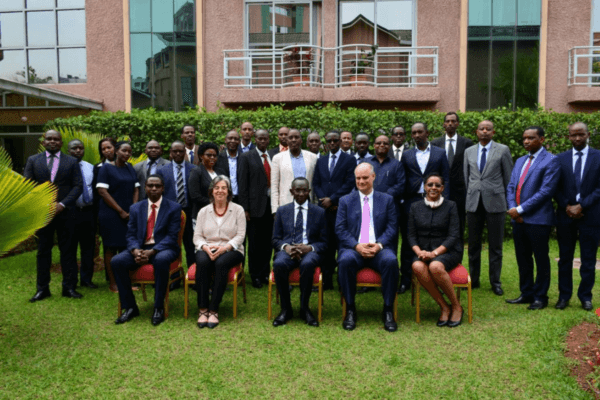News
The Remaking of Rwanda Through Mediation and Restorative Justice
Dispute resolution and restorative justice were integral to Rwanda’s re-writing of its national narrative in the aftermath of the 1994 genocide. Both also played a traditional role in pre-colonial Rwandan society.
Historically, Rwandan communities addressed conflict and all matters of importance in a process known as Gacaca, literally, ”cut grass,” a method for dispute resolution, where the entire community participated in an outdoor circle. Drawing on this tradition, Gacaca Courts were established in this century as a way for Rwandans to confront their past through a transitional justice system. In the local community Gacaca Courts, perpetrators and survivors of the 1994 genocide were brought together face to face, as part of a countrywide effort to build a culture of reconciliation and forgiveness.
Expanding mediation within Rwanda has been a critical component of the country’s aspiration to establish itself as a stable civil society, as well as a key economic hub in Africa. Declared a failed state in 1994, Rwanda has experienced steady growth since those troubled times. Today, Rwanda is considered to have the least corruption of any country in Africa.
A key feature of the Justice and Reconciliation Sector of the Rwandan government has been the establishment of a community-based mediation system. About 30,000 locally elected mediators preside over the forum of original jurisdiction for the majority of all civil matters within the country. Court-based mediation, as part of the civil justice system, is thought to be the next key step.

Leading the effort to develop a court-based mediation program in Rwanda are Senior Fellows of the Weinstein International Foundation, in collaboration with African Peace Partners, Edwards Mediation Academy, and the JAMS Foundation.
A mediation pilot project that began in the Commercial Courts last year included the training of commercial court appellate and trial level judges, commercial litigators, and in-house counsel from the banking industry. Immediately after the training, amendments to the Civil Code were enacted to allow mediation in all courts. Subsequently, commercial court judges who had already begun successfully mediating, began training judges and attorneys in other areas of practice. At the same time, amendments to the criminal code have opened the door for further expansion of restorative justice processes as part of the plea bargaining process. Also underway is an effort to create a national policy to establish the theoretical underpinnings to consolidate and integrate these innovations into an ongoing national process of interest-based reform.

